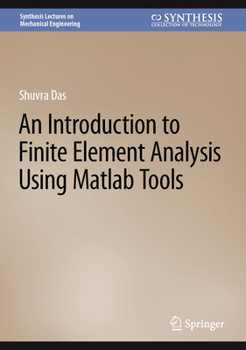An Introduction to Finite Element Analysis Using Matlab Tools
This book is an attempt to develop a guide for the user who is interested in learning the method by doing. There is enough discussion of some of the basic theory so that the user can get a broad understanding of the process. And there are many examples with step-by-step instructions for the user to quickly develop some proficiency in using FEA. We have used Matlab and its PDE toolbox for the examples in this text. The syntax and the modeling process are easy to understand and a new user can become productive very quickly. The PDE toolbox, just like any other commercial software, can solve certain classes of problems well but is not capable of solving every type of problem. For example, it can solve linear problems but is not capable of handling non-linear problems. Being aware of the capabilities of any tool is an important lesson for the user and we have, with this book, tried to highlight that lesson as well.
Format:Hardcover
Language:English
ISBN:3031175395
ISBN13:9783031175398
Release Date:March 2023
Publisher:Springer
Length:219 Pages
Weight:1.30 lbs.
Dimensions:0.7" x 6.7" x 9.6"
Based on Your Recent Browsing
Customer Reviews
4 customer ratings | 4 reviews
There are currently no reviews. Be the first to review this work.





















